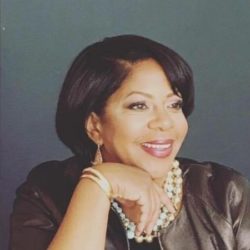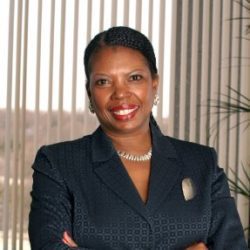The business world has taken on a new face… and it’s quite a colorful one. In recent years, the rate of women entrepreneurs has almost doubled compared to that of their male counterparts. Further, the rate of growth for firms owned by Black women entrepreneurs is even higher at a massive 164% from 2007 to 2018 which is three times the growth rate of their female peers. However, while this particular group of women is excelling in terms of launching their own start ups, therein lies greater challenges that attribute to the low sustainability of black female owned businesses. Startups founded by black women were reported by ProjectDiane to only be afforded a mere average of 0.2% of all venture capital funding. In addition all women-owned businesses produced an average revenue of $143,100 a year as of 2018, but black-owned businesses were only able to generate $24,700 per firm. These challenges are distinct to black women entrepreneurs who make evident their importance to the progression of the black community and American economy as a whole.
In a series of interviews with Hera Hub DC members, the experience and necessities of Black female founders is explored through the lens of three different women who belong to three very different generations. As times have changed, so have the challenges and needs of black women pursuing their own businesses. From their personal perspective as black female founders, the creative Krystin Hargrove, the elegant Denise Harris and the wise Faye Coleman break down their individual experiences of starting and maintaining their own companies and offer advice to the newer generation of entrepreneurs on how to be successful.
 Krystin Hargrove, Founder of CoTripper
Krystin Hargrove, Founder of CoTripper
As a black millennial female entrepreneur, do you think that your challenges differ greatly compared to some of your counterparts/mentors? What are some of the biggest challenges you’ve faced as a woman of color?
There are many instances where I am the only black female founder in a room. This is the case most of the time at pitch events as well. You have to be adaptable in order to be successful in these spaces. You have to get passed discomfort and immerse yourself into your environment in order to get what you want out of the situation. Go into it with a positive attitude and believe that you have just as much of a chance as anyone else.
I see that you have a large following on your social media. Has social media helped boost your entrepreneurial platform and how so?
Followers are overrated. I’ve learned that how you engage with the people who follow you is what matters. I engage with my followers constantly which inherently built individual relationships with them. This line of communication that I’d created within these relationships made me realize that a problem existed among my social media community. A lot of moms started asking me how I was able to travel with two kids and that’s when I began to understand that there is a need for single-parent, specifically single mother travel, based off of the people I was connecting with through my social media page. This is how I got the idea to start CoTripper.
Upon starting your businesses, did you have any student loan burdens or any other financial circumstances that impacted you starting your business?
I didn’t have funding to start my business, which is why I participate in many pitch events. I had to sacrifice a lot to be a full-time founder. Because opportunities are greater when you have more time for your business, I made sure to scale back on my life expenses. I started living below my means and learned how to survive with less money… close to nothing at all… as a single mother with two children to add to everything else.
Advice to the generation of entrepreneurs following right behind you?
You have to do the work. Your voice isn’t enough. You won’t get far believing that things are handed to you and you cannot… you cannot take things at face value. There could have been 10 years of experience behind that photo with thousands of likes and that’s the kind of work you must be prepared to put in. Yes, there is opportunity, but you have to look beyond today and innovate for tomorrow. The world is always changing so you must be innovative enough to solve the problems that are constantly changing.
To do this, start with a real problem. You can’t replicate ideas and run with them. The problem has to be real to you because as this world continues to change, if you are passionate about the problem that you are trying to solve, it will motivate you to show up and do the work. I’ve also learned what type of business scales. Your most passionate business ideas can’t be your first. Timing, environment and culture all play a factor into how successful an idea will be.
Growing up as a student-athlete, I always had an “and” factor. It was always academics “and” sports. When I finished school, I was just working and I felt like I needed that “and” factor in my life again. So, I started blogging with no intention of it becoming anything. I started investing in the relationship with other bloggers who ended up helping me in entrepreneurship. They helped me understand what my passion is.
You cannot do this by yourself. I have a group that I call “accountability partners”. We keep each other on track and encourage one another to celebrate the wins no matter how small they may be. It’s better for your mental health to recognize the smallest progress that you’re making with your business, otherwise you’ll be discouraged and be inclined to give up. I’m also a mentor as this helps grow my own leadership skills and allows me to give back to the generation behind me. Knowledge is valuable and this is how I thrive. I surround myself with people who push me and encourage me to keep going.
I’ve always been preparing myself for my business. Positioning myself to have that community. It’s a lifestyle. You must strategically and intentionally position yourself for success, whether that be to get to the next stepping stone in pursuing your business goals. I put myself in uncomfortable positions so as to grow in the direction that I needed to. I would analyse my time and who I spent it with. I went to fewer happy hours with friends, and instead went to networking events that allowed me connections that now benefit my business. I built a community of founder who understand where I was at the time of starting my business and the journey that I am currently pursuing. They help push me as an entrepreneur.
 Denise Harris, Founder of Denise Harris Executive Coaching and Corporate Consulting
Denise Harris, Founder of Denise Harris Executive Coaching and Corporate Consulting
What were some of the biggest challenges when starting your business?
Understanding my own worth. I didn’t understand it until I started seeing results from the women I was helping.
How did you overcome them? Who helped you?
Seeing other women doing the same thing. I started creating my mentor list which include authors who I look up to. I learned what their strategies were and built a positive community of support that I surround myself with and consult whenever I have a new idea.
How do you go about taking on new goals and achieving them ? Who do you talk to about your milestones and ideas for your business?
I start with a vision and then I ask myself if I am doing the things that will lead me to my vision. I have a cohort of women who act as my personal advisory board- women with businesses and who understand the struggle. I include women to look up to who are doing more than me and have more experience in their field. I ask for their feedback on my plans, but ultimately I look to myself to decide whether to move forward.
What is the best piece of advice that you would give to a female millennial entrepreneur?
Progress over perfection.
You have to be okay with failing.
Recognize burn out. Many millennials have already started trying to pursue their careers at such a young age and its important to identify the times where you feel burned out and to find the tools that help you recognize and fix the feeling.
Put yourself around positive people who support you.
FUD- Fear Uncertainty and Doubt. You have to get over this. Remember that it’s just these simple feelings and move past them.
Lastly, always bet on yourself. You know your passion and your business best, so do what you feel is best and listen to your intuition.
 Faye Coleman, Founder of FEC Enterprises
Faye Coleman, Founder of FEC Enterprises
Can you describe your journey that led you to FEC Enterprises?
I grew up during the 1960’s anti war campaign, the black power movement and civil rights movement era. My parents were from the Jim Crow South and moved North to Boston during the Big Migration. In college I was very involved with the NAACP, Redline Campaign, SNCC and I also helped start the Pan African MLK Liberation University. I happened to meet my husband during this time and we eventually moved back to D.C.
I got a Job in Education with consulting companies, researching models of urban education for minority students. One consulting firm I worked with was owned by all Black women and I was later promoted to their division director position in marketing.
Over time I began to think, If I work this hard for someone else, I might as well do it for myself I didn’t want to have any regrets and look back wondering what could have been.
I started my own business in my basement- a business that later became a multimillion dollar company that I sold in 2015. We would create and implement projects that work to improve the human condition. After hitting the age of retirement, I decided that I didn’t want to work full time or have the responsibility of running a business. I took half a year off only to realize that I wasn’t finished. I found myself determined to give back by helping women business owners by sharing my knowledge from experience. I wanted to pay it forward through coaching. So, I got trained and certified as an executive coach.
As a black female baby boomer entrepreneur, do you think that your challenges differ greatly compared to some of your counterparts/mentors?
Like many women, my experience in professional spaces included not being taken seriously by male and white counterparts. However, the credentials I’ve gained by way of earning my Doctorate degree gives me an extra tool of agency to be taken seriously. I know that as a black woman I have always had to be twice as better than everyone else. I had to make sure I had as many tools in my toolbox as possible to make it impossible for anyone to turn me away or tell me no.
Before my Doctorate degree, I had already started my business so I was very well versed as an entrepreneur. I quickly came to understand that most of my professors didn’t know what they were talking about. They hadn’t been in the real world for so long and some had never worked outside of academia. Ergo, many of my professors had no idea how an actual business was run, so I suffered through my doctorate classes motivated by the fact that this piece of paper would be yet another tool in my toolbox to ensure that I was heard and taken seriously in the professional world.
Do you think that DC is moving in a better direction today for black women entrepreneurs? Why or why not?
Today’s era is a lot easier. I started my business during the Ronald Reagan era, which is the closest to the social and political culture of the Trump administration. Women were not taken seriously and back then, your husband was required to cosign on a loan until the Women’s Business Ownership Act. The Gen X and millennial generations don’t have to go through what I went through. However, a persistent challenge that has lasted throughout time is black women’s lack of access to capital and venture funding. However, there are alternatives to help combat this that didn’t exist back when I was first starting. This doesn’t mean that it’s easy, but that there are simply more resources for greater opportunity. For instance, there were no mentors for me back then. No education on debt finance or equity financing. We didn’t have access to that information or funding- instead we had to create that through our own experiences and acquired funding strictly from friends, family and self financing for the business.
Upon starting your businesses, did you have any student loan burdens or any other financial circumstances that impacted you starting your business?
I was fortunate enough not to have student loans due to Affirmative Action which afforded many black Americans tuition at Universities looking to fulfill Affirmative Action requirements.
What is the best piece of advice that you would give to a black female millennial entrepreneur?
I want my time contributing to what I want and what I care about… What I value in life. I could not reconcile my values for the work someone else had me doing. So, I developed a plan to work for myself in a field that I am passionate about and in a way that is inline with my personal set of values.
Therefore, use time wisely even though it seems like you have your whole life ahead of you. Think really hard about where your passion lies.
Ask yourself what the biggest difference you can make on this Earth and how to do it? Do some introspective soul searching. Your passion will bring you inner joy. Only you can achieve joy internally. Ask yourself what it is that really drives you and then go after it with a plan- you must have a plan to get to that passion.
In this era there are a lot of distractions, but the more time you spend distracted, the more time is lost and could’ve been spent pursuing your passion. We all get so easily distracted from what gives us the most joy, the key is to focus and pursue what brings you happiness.
In Closing
As a millennial black woman just starting to embark on her journey as a young entrepreneur, I found the shared experiences and perspectives of these extraordinary women to be beneficial to my understanding of black female founders and their trials on the road to success. Krystin Hargrove unveils why the number of likes and thousands of followers on social media mean nothing if you don’t build relationships with your virtual followers and invest in those who support and believe in your vision. Denise Harris stresses the importance of acknowledging your fears in order to embrace and move past them. I know that the key to my own success is to always bet on myself when making the harder and scarier decisions; because at the end of the day, I’m the one that must live with my choice to take the leap of faith or to stand complacent wondering what if. Faye Coleman shared a lifetime of perseverance in her experience as an entrepreneur during an era of major social change for both women, people of color and the intersection between them. My takeaway from her words of wisdom was to simply go after your passion. Life is greater than just success in terms of the material, but to fulfill our passions will ultimately lead to the priceless feeling of internal joy.
While each woman’s experience is different given the era and personal circumstance, the commonalities between them make me hopeful that black women will surely rise in the business community as we continue to share the knowledge of those who have and are currently undergoing challenges that most women entrepreneurs face. Spaces like Hera Hub offer opportunities to learn from the women that persist in tearing down the barriers that have kept black women, and women in general, from reaching their peak potential as professionals and entrepreneurs. The exchange of ideas and advice that take place daily in the coworking space is important to the growth and prosperity of female founders and their businesses, because above all, knowledge is power.
 Sierra Salser, Hera Hub DC Communication Intern and student from Austin College in Sherman, Texas. Sierra devotes her time to promoting cultural and ethnic diversity in professional spaces by way of social media and public outreach projects. With an abundance of passion, she utilizes her personal experience and writing skills as a method to enhance inclusion and equal representation among minority women.
Sierra Salser, Hera Hub DC Communication Intern and student from Austin College in Sherman, Texas. Sierra devotes her time to promoting cultural and ethnic diversity in professional spaces by way of social media and public outreach projects. With an abundance of passion, she utilizes her personal experience and writing skills as a method to enhance inclusion and equal representation among minority women.
